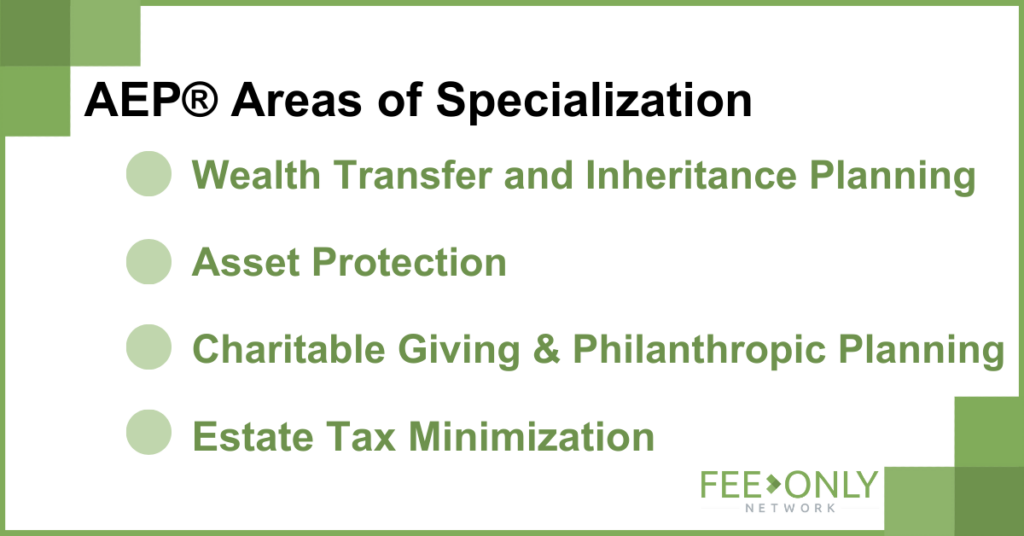
Updated: February 14, 2025

An Accredited Estate Planner® (AEP®) is a professional designation awarded by the National Association of Estate Planners & Councils (NAEPC) to individuals who meet stringent requirements in education, experience, and ethical standards. This designation signifies a commitment to the team approach in estate planning, ensuring comprehensive and collaborative strategies for clients.
The AEP® designation is a graduate-level specialization in estate planning. It is conferred upon professionals who not only possess an existing credential such as attorney (JD), Certified Public Accountant (CPA), Chartered Life Underwriter® (CLU®), Chartered Financial Consultant® (ChFC®), CERTIFIED FINANCIAL PLANNER® (CFP®), or Certified Trust and Fiduciary Advisor (CTFA), but also demonstrate significant engagement in estate planning activities. These professionals must adhere to the highest ethical standards and commit to ongoing education.
To earn the AEP® designation, candidates must fulfill several criteria:
Additionally, AEP® designees must commit to ongoing continuing education, completing 30 hours every 24 months, with at least 15 hours focused on estate planning.

Engaging an Accredited Estate Planner® offers several advantages:
Choosing an Accredited Estate Planner® ensures that you receive specialized, ethical, and comprehensive estate planning services. Their commitment to collaboration and ongoing education positions them to address complex estate planning needs effectively.
The AEP® designation is governed by the National Association of Estate Planners & Councils (NAEPC). For more information, visit their official website.
What is the National Association of Estate Planners & Councils (NAEPC)?
The NAEPC is a national organization that supports the team concept of estate planning. It awards the AEP® designation to qualified professionals and provides resources for ongoing education and collaboration among estate planning professionals.
How does the AEP® designation differ from other financial planning credentials?
While many financial planning credentials cover a broad range of topics, the AEP® designation specifically focuses on estate planning. It emphasizes a collaborative, team-based approach, ensuring comprehensive estate planning services.
Is ongoing education required for AEP® designees?
Yes, AEP® designees must complete 30 hours of continuing education every 24 months, with at least 15 hours dedicated to estate planning, to maintain their designation.
Can professionals with extensive experience bypass the educational requirements for the AEP® designation?
Professionals with over 15 years of active engagement in estate planning may be exempt from the graduate-level course requirements, subject to NAEPC’s approval.
How can I verify if a professional holds the AEP® designation?
You can verify a professional’s AEP® status through the NAEPC’s official website, which offers a directory of accredited estate planners.

Allan Slider is the Founder of FeeOnlyNetwork.com, a one-of-a-kind digital platform that elevates the visibility of fee-only financial advisors, individually and collectively. Fee-Only advisors are ONLY compensated by the client and NEVER make commission by selling financial products, or receiving kickbacks from brokerage firms. Allan is a consumer & investor advocate and a 20+ year veteran of online marketing for financial advisors.

If you're seeing this message, it's because the web browser you're using to access our site is much older and no longer supported. Due to privacy and safety concerns, we don't allow older browsers to access our site. In order to access WhyFiduciary.com, please use a newer browser, like Internet Explorer 10 or above, Google Chrome, or Mozilla Firefox.
Download a newer browser